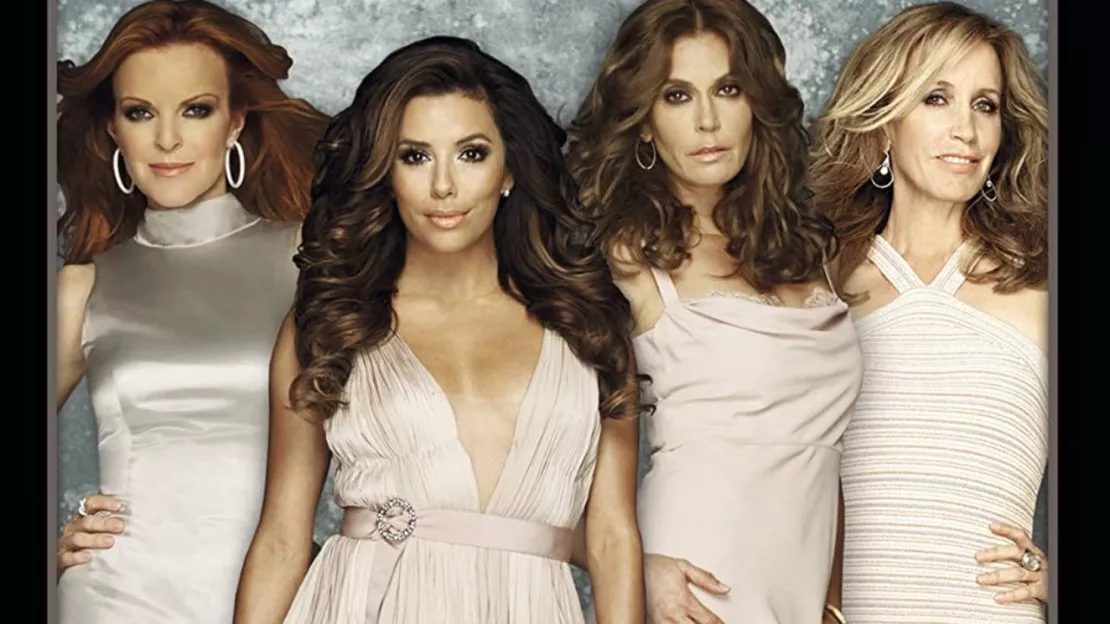Desperate Housewives is a popular American television drama series that aired Cherry, the show was a unique blend comedy drama mystery and satire offering fresh take on the lives of suburban women. Over its eight seasons, Desperate Housewives became a cultural phenomenon, captivating audiences with its intriguing storylines and memorable characters.
- The Premise
- Main Characters
- Key Themes and Storylines
- Cultural Impact
- Conclusion
The Premise
Set on the fictional Wisteria Lane in the town of Fairview, the series focuses on the lives of a group of women, each with her own personal struggles, secrets, and desires. The story is narrated by Mary Alice Young, a deceased neighbor whose suicide in the first episode sets the stage for the series. From her vantage point in the afterlife, Mary Alice reveals the secrets and scandals that unfold on Wisteria Lane.
Main Characters
The show features a core group of housewives, each representing different aspects of suburban life:
- Susan Mayer (Teri Hatcher): A clumsy, well-meaning single mother who often finds herself in awkward situations, especially in matters of love.
- Lynette Scavo (Felicity Huffman): A former advertising executive turned stay-at-home mother, Lynette struggles with balancing her career aspirations and raising her four children.
- Bree Van de Kamp (Marcia Cross): A perfectionist with a seemingly flawless life, Bree is a traditional homemaker who hides deep emotional struggles and family issues.
- Gabrielle Solis (Eva Longoria): A former model who enjoys the luxuries of life, Gabrielle faces the challenges of an unhappy marriage and later, motherhood.
- Edie Britt (Nicollette Sheridan): A sultry real estate agent known for her manipulative ways and frequent romantic entanglements.
Key Themes and Storylines
Desperate Housewives explored a wide range of themes, often blending dark humor with serious issues:
- Secrets and Lies: At the heart of the series are the secrets that each character harbors, whether it’s about infidelity, murder, or hidden pasts. The show often delved into the consequences of these secrets, creating suspenseful and dramatic plot twists.
- Relationships and Family: The series examined the complexities of relationships, from marriage and divorce to parenthood and friendship. The housewives often navigated the ups and downs of their personal lives, providing both comedic and emotional moments.
- Social Commentary: Desperate Housewives offered a satirical look at suburban life, highlighting the pressures and expectations placed on women. It critiqued the idealized image of the American housewife, exposing the darker undercurrents of suburban existence.
Cultural Impact
Desperate Housewives was a critical and commercial success, receiving numerous awards, including multiple Primetime Emmy Awards and Golden Globes. The show was praised for its writing, particularly its sharp dialogue and innovative storytelling.
The series also had a significant impact on popular culture, influencing fashion, language, and the portrayal of women on television. The term “desperate housewife” became a part of the cultural lexicon, symbolizing women who appear to have it all but are, in reality, grappling with deep personal issues.
Conclusion
Desperate Housewives was more than just a soap opera; it was a cleverly crafted narrative that combined humor, mystery, and drama to explore the lives of women in a seemingly perfect suburban neighborhood. Its legacy endures as one of the most iconic television shows of remembered for its bold storytelling, complex characters, and its ability to entertain while offering a poignant commentary on modern life.
